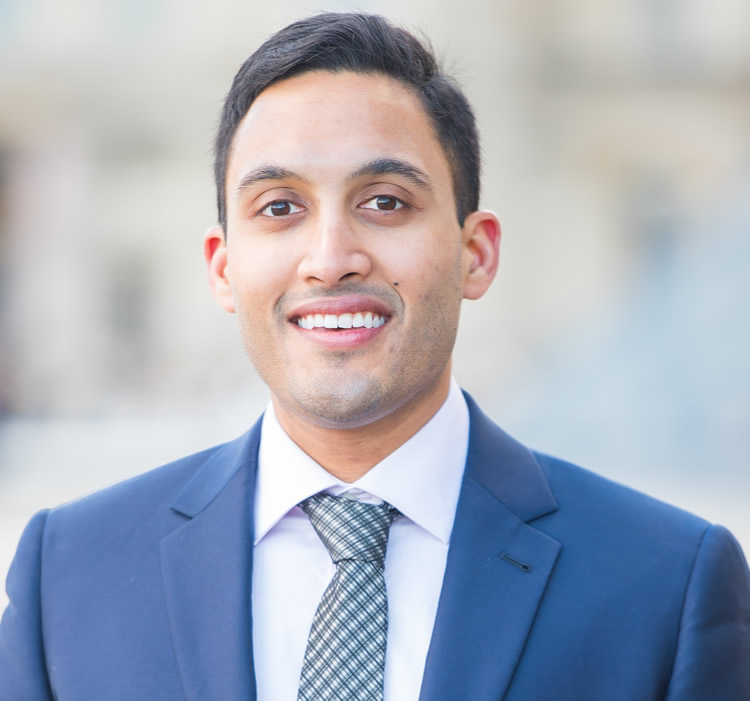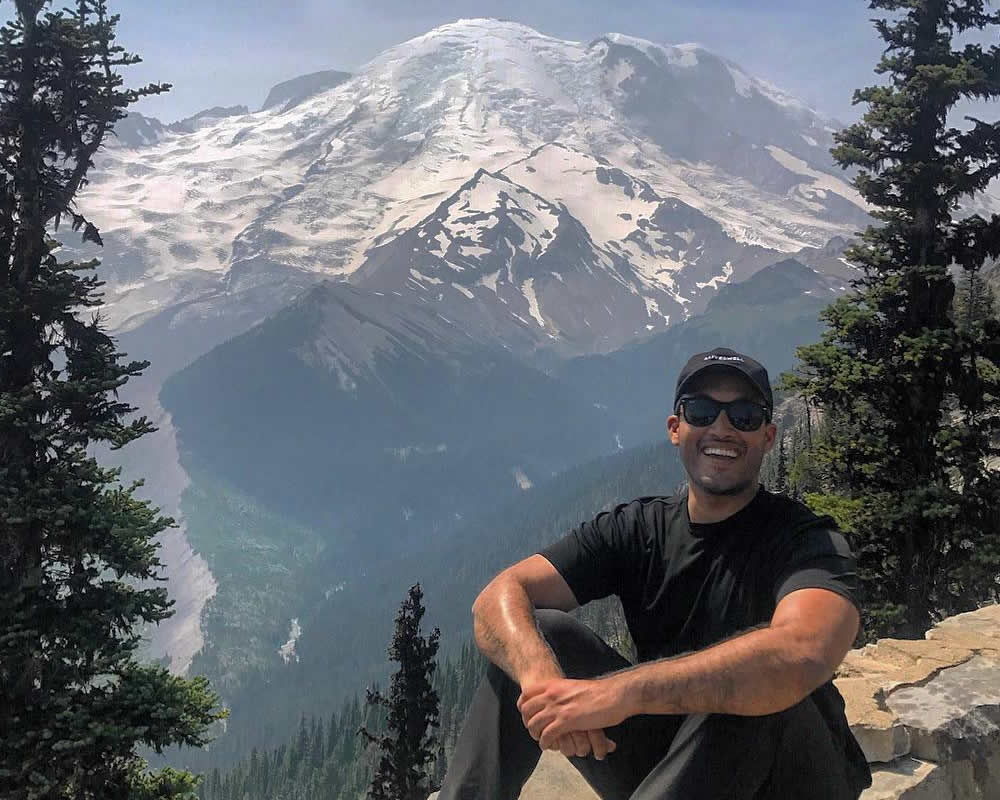Employees across Seattle are making a difference. It’s easy to get involved in small or large projects and to make an impact – every little bit helps. We love seeing innovation workers show up! Read about Seattle’s Inspirational Innovators, get excited, and find tips on how you can help.
This month we speak to Steven Maheshwary. Steven is the head of marketing for Underserved Populations & Special Projects at Amazon. Steven also chairs the Community Technology Advisory Board, and is on the Board of Directors for DemocracyLab.

How long have you worked for Amazon and what do you do there?
“I have worked at Amazon just under 4 years. I currently lead marketing for a mission-driven team called Underserved Populations.”
Did you grow up in the Seattle area or did you move here for work?
“I’m originally from Houston, TX, but moved here to work at Microsoft in late 2012.”
How did you get interested in community service and volunteering?
“I grew up in a service-oriented family, for which I am grateful. From a young age my parents encouraged volunteering at churches, pantries, hospitals, and schools.”
What drew you to working with CTAB and Democracy Lab instead of other organizations?
“Because of my background in tech and my interest in being more engaged with the community, I was drawn to the Community Technology Advisory Board. Seattle makes local government exceedingly accessible, and through the YMCA’s Get Engaged program, I was able to become a CTAB member and ultimately its chair. CTAB is focused on listening to and engaging with the community on key issues of digital equity and cybersecurity & privacy. We also highlight topics of interest that involve the tech community at large. Through CTAB, I’ve had the privilege of engaging with a number of other civically engaged community members and organizations, including Democracy Lab. Democracy Lab is at the forefront of facilitating positive social impact within the tech community, which is why I wanted to get involved in an advisory role. They provide a platform that matches skilled volunteers with tech-for-good projects. They also host tech-for-good hackathons that help teams work on projects that drive solutions in areas of housing, voting, school violence, education and more.”
In your role as a board member and chair, can you give us a glimpse of what that entails?
“As a chair I oversee a board of 11, all who have been appointed by either a Mayor or City Council. Our official charter is to make recommendations to the Mayor and City Council on issues of community-wide interest relating to information and technology. On the topic of digital equity, we help fund community-based organizations up to $50K per grant in addition to supporting the creation and continuation of the Digital Literacy Coalition. On privacy we work closely with the city on reviewing surveillance technologies and providing official policy advocacy. We also host a number of community forums, including a monthly Tech 101 series that we co-host with the Seattle Public Libraries. We also host monthly meetings with featured nonprofit/government stakeholder speakers, in addition to one-off panel discussions on topics of A.I. and automation, private/public partnerships, broadband and more. We also co-hosted the March tech-for-good hackathon with DemocracyLab and Open Seattle.”
What other ways do you support our local community?
“Outside of Democracy Lab and CTAB I donate time and knowledge to organizations and people that can facilitate positive changes in the community. For example, I am currently advising Bellwether Housing, the largest affordable housing nonprofit in Seattle, on its upcoming crowdfunding campaign for affordable housing. In the past, I’ve had the opportunity to speak at the Seattle Professional in Workers Compensation annual dinner and at Ignite Seattle on the cultural impact of Gratitude from learnings during my Fulbright Fellowship in Malaysia a few years ago. I’m also an ambassador for BUILD which provides entrepreneurship programming to high schoolers in under-resourced communities.”

It can be taxing trying to solve complex social problems. How do you stay motivated as a volunteer?
“I am privileged to be surrounded by passionate, civic-minded people all trying to make Seattle a better place to live. That energy coupled with an optimism that, even though Seattle is already a dynamic place to live and thrive for some, we have the resources to lead the country in driving positive social change.”
What words of advice do you have for anyone interested in helping our community, but are unsure where to start?
“First, for those unsure of their ability to contribute – everyone has something to give. Whether it’s your career skills, your education, your lived experiences, your social media support, your time, your money, or simply your presence – the local community can benefit from it.
If there are certain social issues in Seattle that interest you – anything from immigration to the arts – there’s likely an advisory board or commission that exists for it in Seattle. All boards and commission meetings are public, so it’s free to for anyone to attend. The YMCA’s Get Engaged program which places young adults on to these boards is a fantastic way to learn about local government and meet a cohort of similarly passionate young adult leaders. And just to plug CTAB, we meet every second Tuesday of the month from 6-8pm at the Seattle Municipal Tower. Tech-oriented organizations like Democracy Lab, Open Seattle, and Seattle Data 4 Good have frequent meetups and hackathons that allow people to lead/participate in/discuss tech projects that have social impact. Organizations like The Washington Technology Industry Association and Leadership Tomorrow offer civic leadership programs. Those are just the tip of the iceberg!”
